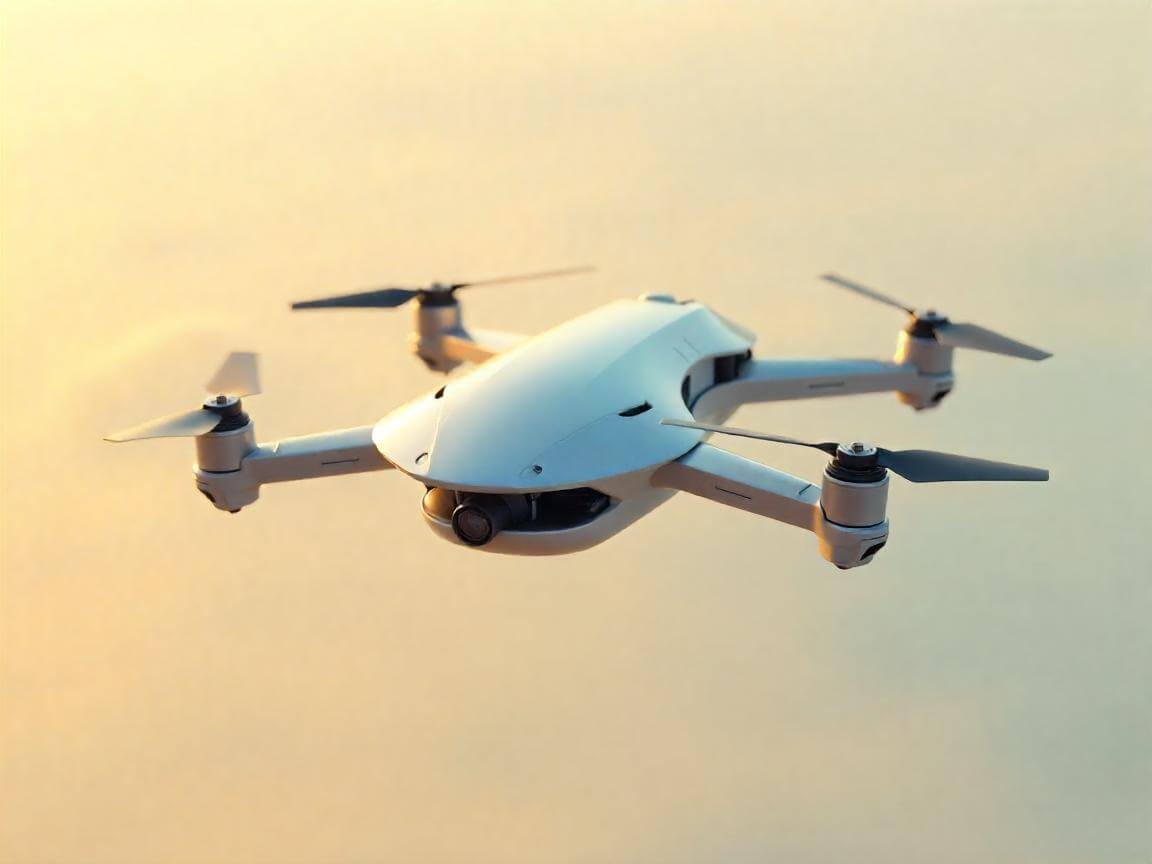
InoBat wprowadza na rynek specjalistyczną baterię dla dronów wojskowych: Przełom w technologii energii obronnej
Wprowadzenie
To przełomowe osiągnięcie w dziedzinie technologii obronnych i innowacji lotniczych, Słowacki startup InoBat zaprezentowała nową, wysokowydajną baterię zaprojektowaną specjalnie dla wojskowe drony. Wprowadzenie na rynek sygnalizuje strategiczną ekspansję firmy InoBat, znanej wcześniej z akumulatorów do pojazdów elektrycznych (EV), na sektor obronności i bezpieczeństwa - dziedzinę, w której magazynowanie energii odgrywa kluczową rolę w powodzeniu misji.
Ten kamień milowy odzwierciedla szerszy trend, w którym siły obronne szybko przyjmują bezzałogowe systemy powietrzne (UAS)tworząc popyt na rozwiązania energetyczne, które zapewniają zarówno gęstość mocy i niezawodność działania. Dzięki nowej baterii klasy wojskowej InoBat wchodzi na rynek o wysokiej stawce, który według prognoz do 2030 r. przekroczy 40 mld USD na całym świecie.
O InoBat: Słowacki lider innowacji w dziedzinie akumulatorów
InoBat, z siedzibą w Bratysławie na Słowacji, stał się jednym z najbardziej obiecujących europejskich startupów zajmujących się technologią akumulatorów. Specjalizując się w pracach badawczo-rozwojowych, zastrzeżonych chemikaliach i produkcji ogniw, firma zyskała reputację dzięki swoim Rozwiązania akumulatorowe szyte na miarę zoptymalizowane pod kątem zastosowań specyficznych dla klienta.
Założona w 2019 r. firma InoBat prowadzi zakłady na Słowacji i współpracuje strategicznie z firmami lotniczymi, motoryzacyjnymi i przemysłowymi w całej Europie. Dzięki tej inicjatywie wojskowej staje się jednym z niewielu europejskich producentów baterii aktywnie przyczyniających się do innowacji w dziedzinie obronności.
Wyzwanie: Zasilanie nowoczesnych dronów wojskowych
Drony wojskowe, znane również jako bezzałogowe statki powietrzne (UAV)wymagają rozwiązań energetycznych, które równoważą kilka konkurujących ze sobą wymagań:
- Wydłużony czas trwania lotu
- Odporność termiczna i środowiskowa
- Wysoka gęstość energii
- Szybkie ładowanie i bezpieczne rozładowywanie
- Kompaktowa i lekka obudowa
Tradycyjne baterie litowo-jonowe często zawodzą, gdy są narażone na ekstremalne warunki na polu bitwy, w tym duże wahania temperatury, wibracje i zakłócenia elektromagnetyczne. Dostrzegając tę lukę, InoBat starał się opracować rozwiązanie, które łączy w sobie trwałość i niezawodność. Wskaźniki wydajności na poziomie pola bitwy.
Cechy baterii do dronów wojskowych InoBat
Zgodnie z oficjalnym oświadczeniem firmy i specyfikacją techniczną, system akumulatorów obejmuje następujące kluczowe innowacje:
1. Możliwość dostosowania składu chemicznego baterii
InoBat wykorzystuje zastrzeżoną platformę opartą na sztucznej inteligencji, aby dopasować odpowiedni skład chemiczny do profilu misji drona. Może to obejmować odmiany NMC (nikiel-mangan-kobalt) lub półprzewodnikowy lit w zależności od masy ładunku i docelowej wytrzymałości.
2. Rozszerzony zakres temperatur pracy
Zaprojektowany do pracy zarówno w warunkach arktycznych, jak i pustynnych, akumulator ma zakres temperatur roboczych od -30°C do +60°Cprzekraczając standardy NATO.
3. Wysoka energia właściwa i moc
Z gęstością energii do 300 Wh/kgWojskowa bateria InoBat umożliwia dłuższy czas trwania misji bez dodatkowej masy. Moc wyjściowa obsługuje tryby nagłych wybuchów, idealne do szybkich zmian wysokości lub manewrów unikowych.
4. Protokoły szybkiego ładowania
Akumulator może osiągnąć stan naładowania 80% w mniej niż 20 minut przy użyciu stacji ładowania dostosowanych do warunków terenowych, umożliwiając Wysoka częstotliwość lotów w aktywnych strefach walki.
5. Ulepszone systemy bezpieczeństwa
Wyposażony w ochronę przed przegrzaniem, ekranowanie EMI i opcje obudowy balistycznej, system jest zoptymalizowany pod kątem integralności operacyjnej w nieprzyjaznych warunkach.
Potencjalne zastosowania
Podczas gdy początkowa wersja jest przeznaczona dla taktyczne drony obserwacyjne i rozpoznawczePrzyszłe iteracje mogą zostać wdrożone w:
- Amunicja samopowtarzalna (aka "drony kamikadze")
- Bezzałogowe statki powietrzne do walki elektronicznej
- Rojące się systemy dronów
- Drony do wywiadu morskiego i powietrznego
Ta wszechstronność zwiększa jego atrakcyjność zarówno dla sojuszniczych programów zamówień NATO, jak i spoza NATO.
Strategiczne znaczenie dla Słowacji i UE
Rola Słowacji w europejskim przemyśle obronnym znacznie wzrosła w ostatnich latach. Wejście InoBat do zastosowań wojskowych jest zgodne z szerszymi celami UE, takimi jak strategiczna autonomia w technologiach krytycznychszczególnie w obliczu napięć geopolitycznych w Europie Wschodniej.
Bateria będzie podobno produkowana w fabryce InoBat's Gigafabryka Voderadyjeden z najbardziej zaawansowanych zakładów produkcji magazynów energii w Europie Środkowej. Dzięki temu Słowacja może stać się centrum produkcji baterii podwójnego zastosowania (cywilnego i wojskowego) w UE.
Reakcja przemysłu obronnego
Eksperci z europejskiego sektora obronnego z zadowoleniem przyjęli tę zapowiedź, powołując się na potrzebę "europejskich innowacji" w zakresie zaawansowanych technologicznie działań wojennych. Chociaż żadne oficjalne kontrakty wojskowe nie zostały potwierdzone, znawcy branży donoszą, że ministerstwa obrony w Niemczech, Polsce i Czechach wyraziło zainteresowanie.
Europejska Agencja Obrony (EDA) również uznała ten rozwój za "strategicznie istotny" i oczekuje się, że dokona przeglądu baterii pod kątem włączenia jej do ogólnoeuropejskich wysiłków na rzecz standaryzacji dronów.
Krajobraz konkurencji
InoBat wchodzi na konkurencyjny rynek, który obejmuje firmy z siedzibą w USA, takie jak Silatronix oraz Ampriusa także izraelskich producentów baterii obronnych. Jednak wyjątkowa propozycja InoBat polega na jego Personalizacja komórek i cykl rozwoju oparty na sztucznej inteligencjiumożliwiając szybszą iterację i gotowość do pracy w terenie.
Co więcej, wraz z rosnącymi ograniczeniami eksportu materiałów akumulatorowych i zaostrzeniem zasad transferu technologii na całym świecie, posiadanie rodzimego europejskiego dostawcy, takiego jak InoBat, staje się strategicznie nieocenione.
Zgodność z przepisami i ochroną środowiska
InoBat podkreślił, że bateria wojskowa spełnia przepisy UE dotyczące zrównoważonego rozwoju. Cechy:
- Chemikalia o obniżonej zawartości kobaltu
- Recykling w obiegu zamkniętym
- Zgodność z REACH i RoHS
Jest to zgodne z rosnącą presją na bardziej ekologiczne technologie obronneszczególnie w krajach Europy Zachodniej.
Co to oznacza dla branży dronów?
Sukces baterii InoBat prawdopodobnie przyspieszy zmianę w kierunku zelektryfikowane lotnictwo wojskowe, w tym:
- Bardziej autonomiczne operacje bez ograniczeń związanych z tankowaniem
- Zmniejszona sygnatura radarowa i termiczna
- Niższe koszty utrzymania w porównaniu do bezzałogowych statków powietrznych z napędem spalinowym
Producenci dronów mogą skorzystać z rozwiązania typu plug-and-play, które można dostosować do wielu konstrukcji płatowca przy minimalnym wysiłku związanym z integracją.
Perspektywy na przyszłość
Według CTO InoBat, przyszłe ulepszenia będą koncentrować się na:
- Wyższa gęstość energii dzięki zaawansowanym rozwiązaniom półprzewodnikowym
- Jeszcze szybsze ładowanie (poniżej 10 minut)
- Inteligentne narzędzia telemetryczne i diagnostyczne do monitorowania stanu baterii w terenie
InoBat zasugerował również współpracę z integratorami obrony lotniczej w całej Europie i planuje rozszerzyć działalność na Bezzałogowe pojazdy naziemne (UGV) oraz Bezzałogowe pojazdy podwodne (UUV) z podobnymi platformami akumulatorowymi.
Wnioski
Wprowadzenie na rynek baterii do dronów wojskowych InoBat stanowi kluczowy moment zarówno dla słowackiego ekosystemu startupów, jak i globalnego krajobrazu technologii obronnych. Łącząc najnowocześniejszą inżynierię baterii z głębokim zrozumieniem wymagań wojskowych, InoBat nie tylko zasila drony - zasila przyszłość nowoczesnej obrony.
Ponieważ systemy energetyczne stają się podstawą operacji taktycznych i strategicznych, innowacje takie jak ta zdefiniują możliwości pola bitwy jutra. Dla InoBat i jego europejskich partnerów misja jest jasna: dostarczać energię, zapewniać bezpieczeństwo i przewodzić w erze zelektryfikowanej obrony.

 Startup InoBat prezentuje baterię do drona klasy wojskowej">
Startup InoBat prezentuje baterię do drona klasy wojskowej">

Komentarze